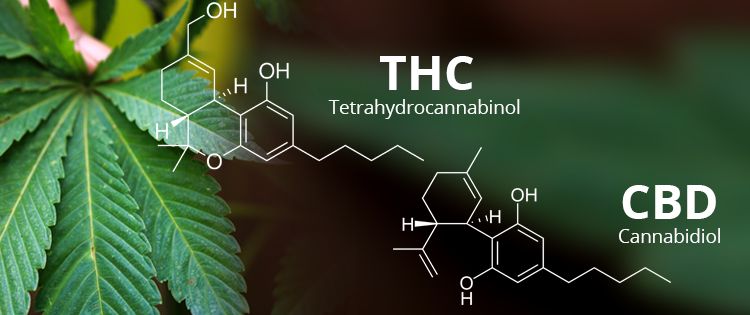People who have genuine anxiety problems or have been diagnosed with General Anxiety Disorder (GAD) likely to look for alternative treatments in order to help them get by with their daily life.
If you’re one of them, you’ve probably heard about cannabis and its effects. If you’ve tried it already or you’re thinking about giving it a shot, you most likely want to know if it’s actually helpful or not.
The answer is not that simple and straightforward, but we’ll try to shed some light on this subject.
Legal Status, Facts, and Myths
In the United States, cannabis-related laws change gradually. As of 2020, 33 states have legalized cannabis for medical use and more are expected to follow. Some of them have allowed the consumption of CBD-based products.
Why are states so selective when it comes to giving people access to this substance? Previous decades brought common misconceptions regarding marijuana. These include the belief that cannabis is strongly addictive, leads to more severe drug abuse, and can result in memory loss, lung diseases, or even death.
On the other hand, those in favor of marijuana assume that it’s safe for long term use, has minimal or no negative side effects, and the research that has been done so far is detailed and conclusive. So what do official studies say about it?
The two most well-known active ingredients in cannabis are THC and CBD.
CBD is a non-psychoactive cannabinoid extracted from hemp or marijuana plants. It doesn’t give you the euphoric sensation and is well tolerated even in larger doses. For commercial use, it’s sold in the form of oils, supplements, gels, gummies, and many more.
THC is the other compound that can be found in plants of the Cannabis genus. It’s the primary psychoactive ingredient that interacts with your cannabinoid receptors giving you the sensation of high.
Stereotypically, you probably associate this activity with smoking joints – and you wouldn’t be wrong. However, besides smoking, you can consume THC in oils, edibles, capsules, tinctures, etc.

Although THC and CBD have similar chemical structures, they affect the human mind and reactions differently. It is worth noting that studies have shown that neither of the compounds is fatal. However, the psychoactive properties of THC often make it less preferable when it comes to medical practitioners and authorities.
How Cannabis Helps to Reduce Anxiety
According to experts from a cannabis dispensary in Las Vegas, people reported that they’d experienced desired effects. Many of those who decided to try cannabis to treat their conditions claimed that it helped them relieve symptoms of social anxiety, anxiety-related sleep problems, phobias, panic disorder, and even post-traumatic stress disorder (PTSD).
Improved relaxation, better sleep, increased sense of calm and peace of mind are among commonly reported benefits of marijuana use. Scientists agree that these undeniably positive effects do exist – although they may only be short-term.
Stress, Anxiety, and Self-Medication
It’s also important to differentiate stress and anxiety. Stress is a psychological response to difficult situations from your daily life or troubled personal relationships.
Anxiety, especially General Anxiety Disorder (GAD), is a condition when feelings of distress and worry arise without any particular reason, hindering your ability to cope well with your daily routine.
Additionally, self-medicating is a situation when you decide to alleviate a medical problem or symptom without professional assistance.
Quite often, self-medicating procedures involve the use of alternative methods that bring immediate relief. However, without conclusive research, it’s difficult for authorities to establish their legal status unanimously. That’s why some states oppose marijuana legalization regardless of its reported benefits.

Concerns
Remember that excessive consumption can result in higher tolerance for marijuana. This means that you may need bigger doses to get the same desired effects.
Additionally, research shows that marijuana abuse, especially in the case of adolescents and young adults, can lead to impairment of their social and cognitive skills.
This is why some states are reluctant to legalize recreational cannabis consumption. Nevertheless, moderation is key, and authorities agree that taxation of this substance can bring long-term benefits.
Conclusions
Obviously, our current state of knowledge is insufficient. Further research is needed to get more conclusive evidence.
Nevertheless, if you decide to try using cannabis as a method to reduce your anxiety-related disorders, remember to do it under the care of a mental health specialist and a medical provider.
Medical marijuana consumption can provide you with support and ease your symptoms, but additional lifestyle changes or internal work on your mental condition can further help to facilitate your recovery process.
Have you tried using medical marijuana to reduce your anxiety symptoms?
- How to Use Waxmaid Honey Pen? - April 9, 2024
- How To Choose The Best Electric Dab Rig For Christmas - December 7, 2023
- Maintenance Matters: Keeping Your Glass Water Bong in Pristine Condition - October 9, 2023


